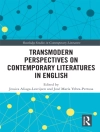What is the je-ne-sais-quoi? How-if at all-can it be put into words? In addressing these questions, Richard Scholar offers the first full-length study of the je-ne-sais-quoi and its fortunes in early modern Europe. He describes the rise and fall of the expression as a noun and as a topic of debate, examines its cluster of meanings, and uncovers the scattered traces of its ‘pre-history’. The je-ne-sais-quoi is often assumed to belong purelyto the realm of the literary, but in the early modern period it serves to articulate problems of knowledge in natural philosophy, the passions, and culture, and for that reason it is approached here from an interdisciplinary perspective. Placing major figures of the period such as Montaigne, Shakespeare, Descartes, Corneille, and Pascal alongside some of their lesser-known contemporaries, Scholar argues that the je-ne-sais-quoi serves above all to capture first-person encounters with a ‘certain something’ that is as difficult to explain as its effects are intense. When early modern writers use the expression in this way, he suggests, they give literary form to an experience that twenty-first-century readers may recognize as something like their own.
Richard Scholar
Je-Ne-Sais-Quoi in Early Modern Europe [PDF ebook]
Encounters with a Certain Something
Je-Ne-Sais-Quoi in Early Modern Europe [PDF ebook]
Encounters with a Certain Something
Achetez cet ebook et obtenez-en 1 de plus GRATUITEMENT !
Langue Anglais ● Format PDF ● ISBN 9780191515262 ● Maison d’édition OUP Oxford ● Publié 2005 ● Téléchargeable 6 fois ● Devise EUR ● ID 2272218 ● Protection contre la copie Adobe DRM
Nécessite un lecteur de livre électronique compatible DRM












